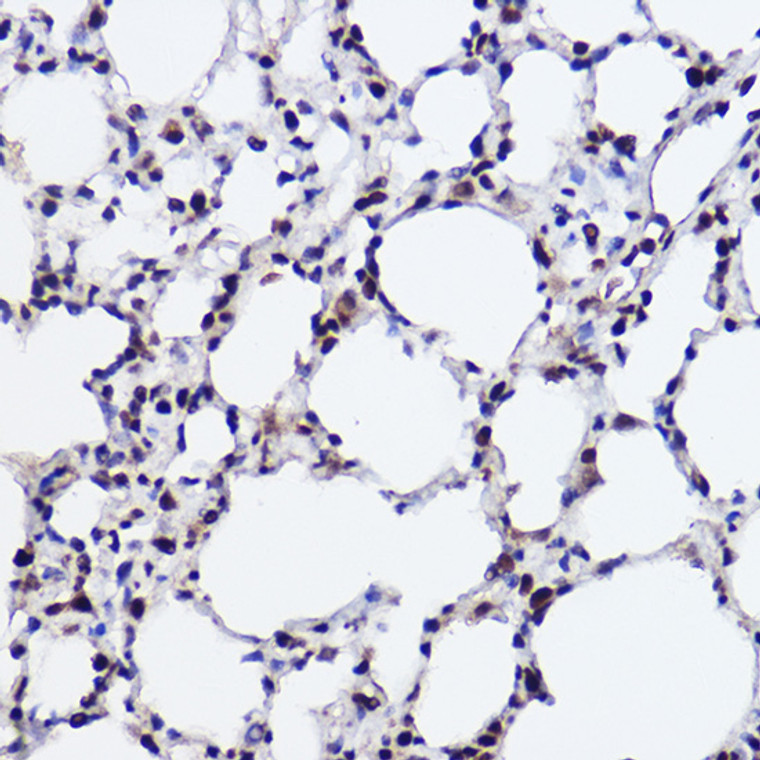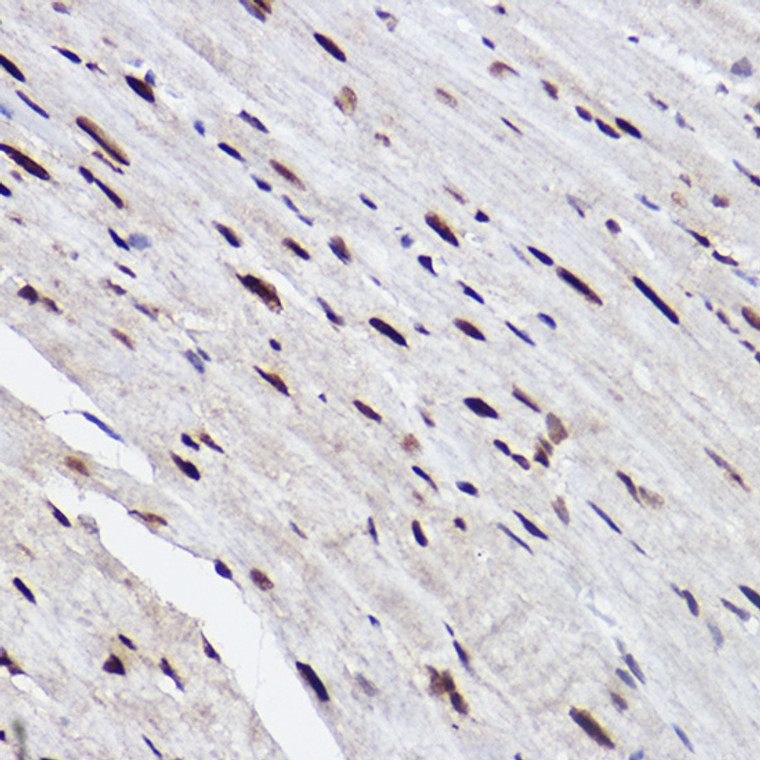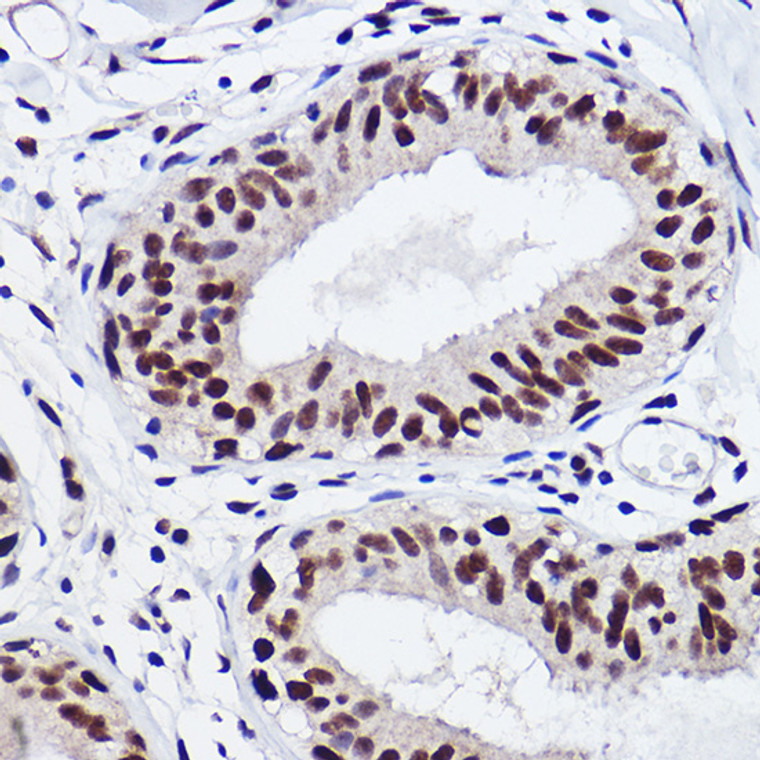| Host: |
Rabbit |
| Applications: |
IHC |
| Reactivity: |
Human/Mouse/Rat |
| Note: |
STRICTLY FOR FURTHER SCIENTIFIC RESEARCH USE ONLY (RUO). MUST NOT TO BE USED IN DIAGNOSTIC OR THERAPEUTIC APPLICATIONS. |
| Short Description: |
Rabbit monoclonal antibody anti-GTF2I (1-100) is suitable for use in Immunohistochemistry research applications. |
| Clonality: |
Monoclonal |
| Clone ID: |
S1MR |
| Conjugation: |
Unconjugated |
| Isotype: |
IgG |
| Formulation: |
PBS with 0.02% Sodium Azide, 0.05% BSA, 50% Glycerol, pH7.3. |
| Purification: |
Affinity purification |
| Dilution Range: |
IHC-P 1:50-1:200 |
| Storage Instruction: |
Store at-20°C for up to 1 year from the date of receipt, and avoid repeat freeze-thaw cycles. |
| Gene Symbol: |
GTF2I |
| Gene ID: |
2969 |
| Uniprot ID: |
GTF2I_HUMAN |
| Immunogen Region: |
1-100 |
| Immunogen: |
A synthetic peptide corresponding to a sequence within amino acids 1-100 of human GTF2I (P78347). |
| Immunogen Sequence: |
MAQVAMSTLPVEDEESSESR MVVTFLMSALESMCKELAKS KAEVACIAVYETDVFVVGTE RGRAFVNTRKDFQKDFVKYC VEEEEKAAEMHKMKSTTQAN |
| Tissue Specificity | Ubiquitous. Isoform 1 is strongly expressed in fetal brain, weakly in adult brain, muscle, and lymphoblasts and is almost undetectable in other adult tissues, while the other isoforms are equally expressed in all adult tissues. |
| Post Translational Modifications | Transiently phosphorylated on tyrosine residues by BTK in response to B-cell receptor stimulation. Phosphorylation on Tyr-248 and Tyr-398, and perhaps, on Tyr-503 contributes to BTK-mediated transcriptional activation. Sumoylated. |
| Function | Interacts with the basal transcription machinery by coordinating the formation of a multiprotein complex at the C-FOS promoter, and linking specific signal responsive activator complexes. Promotes the formation of stable high-order complexes of SRF and PHOX1 and interacts cooperatively with PHOX1 to promote serum-inducible transcription of a reporter gene deriven by the C-FOS serum response element (SRE). Acts as a coregulator for USF1 by binding independently two promoter elements, a pyrimidine-rich initiator (Inr) and an upstream E-box. Required for the formation of functional ARID3A DNA-binding complexes and for activation of immunoglobulin heavy-chain transcription upon B-lymphocyte activation. |
| Protein Name | General Transcription Factor Ii-IGtfii-ITfii-IBruton Tyrosine Kinase-Associated Protein 135Bap-135Btk-Associated Protein 135Srf-Phox1-Interacting ProteinSpinWilliams-Beuren Syndrome Chromosomal Region 6 Protein |
| Cellular Localisation | CytoplasmNucleusColocalizes With Btk In The Cytoplasm |
| Alternative Antibody Names | Anti-General Transcription Factor Ii-I antibodyAnti-Gtfii-I antibodyAnti-Tfii-I antibodyAnti-Bruton Tyrosine Kinase-Associated Protein 135 antibodyAnti-Bap-135 antibodyAnti-Btk-Associated Protein 135 antibodyAnti-Srf-Phox1-Interacting Protein antibodyAnti-Spin antibodyAnti-Williams-Beuren Syndrome Chromosomal Region 6 Protein antibodyAnti-GTF2I antibodyAnti-BAP135 antibodyAnti-WBSCR6 antibody |
Information sourced from Uniprot.org
12 months for antibodies. 6 months for ELISA Kits. Please see website T&Cs for further guidance









